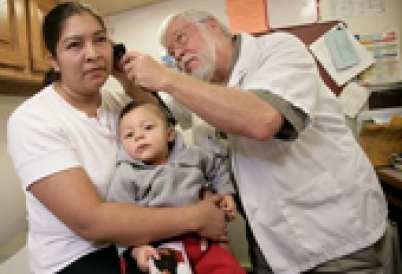In Omaha, NE, a new gateway city for Latinos, an AS/COA luncheon brought together the mayor and private-sector executives to discuss Latinos’ socioeconomic contributions and the benefits of workforce integration efforts.
A compromise by Senate Democrats in the new health care reform bill would limit access to some new medical plans for undocumented and legal immigrants. Critics say resulting emergency care costs will be passed along to taxpayers and insurance policyholders.
Adequate and affordable housing around Portland, Oregon, is part of a broader strategy to help support the Latino community’s upward mobility.
By 2050, Hispanics will account for 30 percent of the U.S. population, making their integration a top policy priority.
Every ten years the Census attempts to provide a demographic snapshot, but some people are undoubtedly uncounted, miscounted, or overlooked, writes Carlos Yescas, author of Indigenous Routes: A Framework for Understanding Indigenous Migration.
As financial institutions work to attract the unbanked, effective programs must be better tailored and implemented as part of a long-term empowerment process, writes Qualitas of Life Exectuiver Director Adrián Franco.
A new report issued by the Maryland Council for New Americans recognizes that that the state “needs the contributions of immigrants.”










